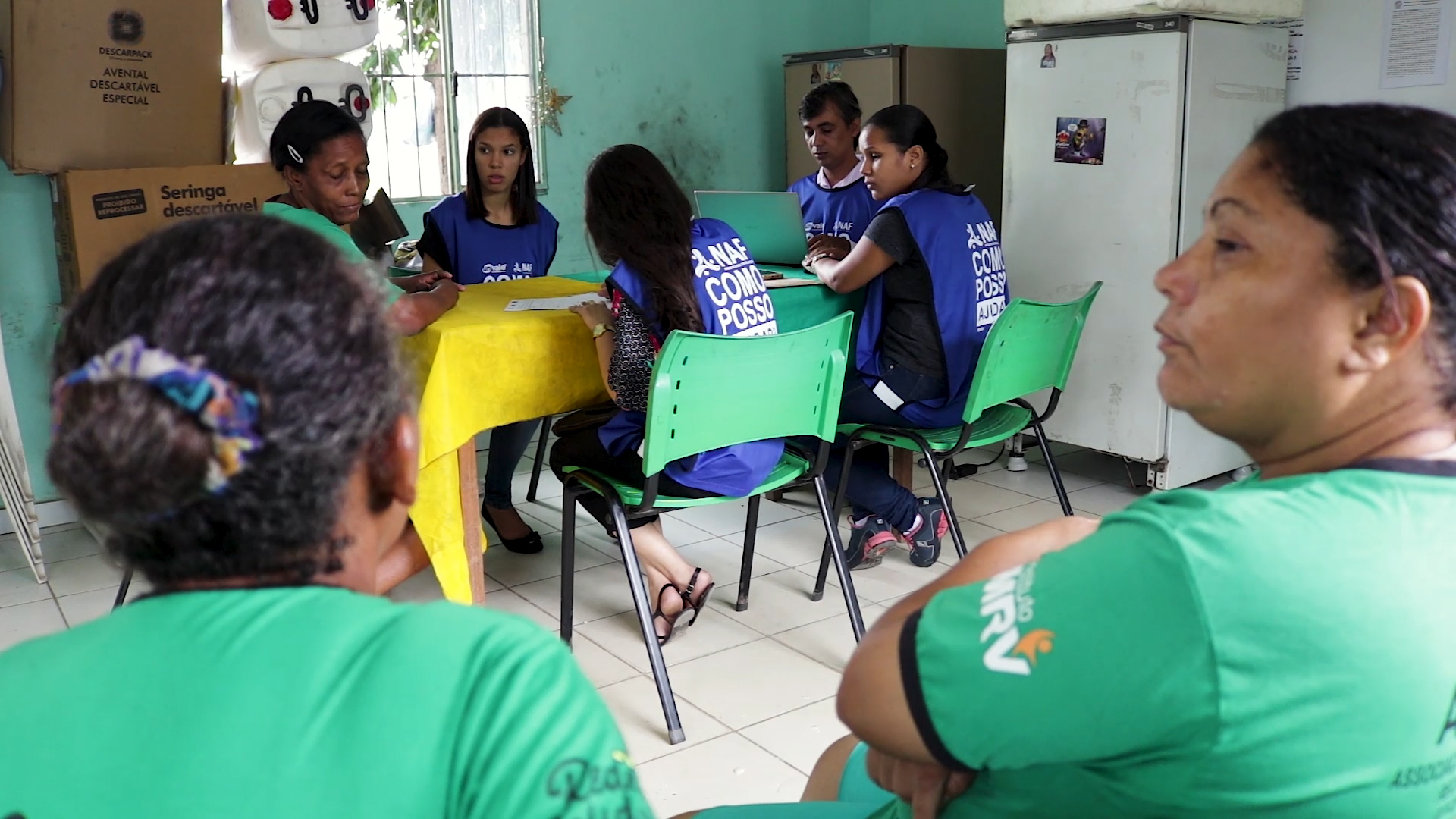The competition, organised by EUROsociAL+, distinguishes those pro-bono technical assis-tance projects whose impact has been most beneficial on the community and on the stu-dents working as volunteers in Accounting and Fiscal Support Centres

These Accounting and Fiscal Support Centres (NAF, in their Spanish acronym) are a higher education initiative through which accounting and business sciences students, trained by the tax administration, give free accounting and tax assistance to low income individuals and micro-entrepreneurs, while the students themselves improve their professional abilities and ethical attitudes.
EUROsociAL+, together with the Federal Revenue Service of Brazil, has been promoting NAFs in Latin America since 2014, with the aim of reducing inequalities, strengthening confidence in institutions, facilitating access to tax services and encouraging voluntary compliance with tax obligations.
At present, there are 358 NAFs in Brazil and 260 NAFs in higher education institutions in Argentina, Bolivia, Costa Rica, Colombia, Chile, Ecuador, Honduras, Mexico and Peru.
With the aim of highlighting the NAFs’ experiences of social innovation and human nature, as well as their impact on the community and on students, EUROsociAL+ has convened the First NAF 2.0 Audiovisual Innovation Award, aimed at videos showing these initiatives.
The idea behind this competition was to give visibility to the work carried out by universities, teachers and students, who with their actions in the NAF establish links between institutions and the community, reducing social exclusion and developing communication strategies that improve social interaction and contribute to the exercise of citizenship.
The countries where NAFs are present and which entered the competition carried out a preliminary selection to choose the videos which would represent them at regional level. Based on this, EUROsociAL+ chose the winning productions, taking into account the impact of the NAF, the context, the gender approach, creativity, structure and audiovisual quality.
In the ‘Higher Education Institution’ category, the winning video was ‘Itinerant NAF’, from the Universidade Vale do Rio Doce – UNIVALE of Brazil. The recording shows the personalised attention provided by the students to the members of the Naturaleza Viva Association of Collectors of Recyclable Materials (Ascanavi). These people face various difficulties with regard to getting to know about the tax and social benefit system, as well as how to access public services, since many of them are elderly or have problems getting around. Thanks to the Itinerant NAF, they were taken care of within the Association, without having to travel. The project had a positive impact on both Ascanavi and the University, which has strong ties with the community. The NAF also helps the families of associates and backs up the entity’s accounting and administrative organisation, with the aim of optimising the business and applying for public subsidies.
In the ‘Students’ category, the winning piece of work was ‘El NAF Celendín’, from Peru. Coordinated by the Instituto Privado Celendín (IPC), it is the only NAF in the country that is not located in a regional capital, being therefore a key point for guidance to entrepreneurs in the rural sector. The video describes the experience of Víctor Chávez, 19, one of the IPC’s Accounting students, who is committed to providing accounting and tax assistance to the people in his community who need it the most. Celendín is an Andean city with colonial roots, of approximately 30,000 inhabitants, located in one of the 13 provinces in the Department of Cajamarca, three hours away from the regional capital, which is where its inhabitants would need to travel to if it weren’t for the NAF.
The two winning initiatives in the competition will be presented by the institutions responsible for their development in the NAFs’ International Workshop on Innovative Experiences to be held this year in the city of Cuzco (Peru), from 10 to 12 June.
Second place in the ‘Institution of Higher Education’ category went to the Technical University of Cotopaxi, and third place to the Lasalle Faculty of Brazil. In the case of the ‘Students’ category, second place went to the National University of Chimborazo in Ecuador and third place, to the Salesian Polytechnic University of Ecuador.
EUROsociAL+



